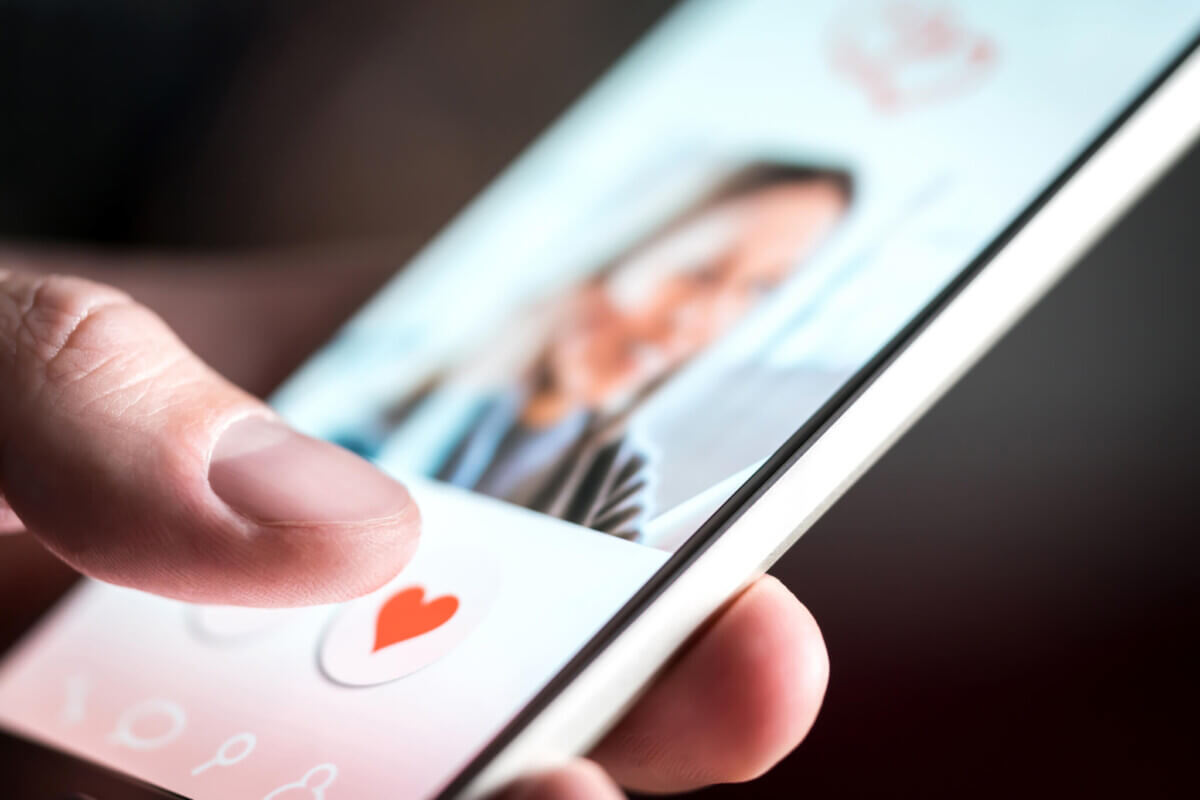
Person using an online dating app. (© terovesalainen - stock.adobe.com)
COLUMBUS, Ohio — Dating apps like Tinder and Bumble have changed the way millions of people meet each other and make connections, but just like so many other aspects of digital life these apps have a tendency to become habit-forming. Some people even end up becoming so addicted that it gets in the way of their job, education, or offline friends. Now, a study conducted at Ohio State University has identified two traits often found in individuals wrestling with especially bad dating app addictions: loneliness and social anxiety.
Meeting your next romantic interest or Friday night date is as easy as swiping a few times, so it's easy to understand why millions of people are turning to dating apps. But, just like pretty much everything else in life, moderation is key.
“It's not just that they're using their phone a lot,” explains lead author Kathryn Coduto in a release. “We had participants who said they were missing school or work, or getting in trouble in classes or at work because they kept checking the dating apps on their phones.”
“I've seen people who use dating apps compulsively. They take their phones out when they're at dinner with friends or when they're in groups. They really can't stop swiping,” Coduto continues, recounting her own experiences among dating app users.
Researchers gathered 269 undergraduate students with experience using at least one dating app, and had each answer a number of questions designed to measure their loneliness and social anxiety. Participants were also asked to state how much they agreed with statements like, “I am unable to reduce the amount of time I spend on dating apps,” in order to measure addiction and compulsive use.
Many of the participants admitted that they had experienced negative consequences due to overusing dating apps, such as missing class or work. Furthermore, while not especially surprising, researchers noted that participants who ranked high for social anxiety consistently stated that they prefer talking to potential dates online as opposed to in person.
Perhaps the most interesting of the study's findings was that social anxiety or loneliness alone didn't lead to compulsive use, but the presence of both traits almost always led to overuse and negative life consequences.
“That combination led to compulsive use and then negative outcomes,” Coduto comments.
The study's authors say it is important for dating app users to be aware of their feelings and mood when using the apps, and try to set limits for themselves regarding time spent swiping.
The study is published in the Journal of Social and Personal Relationships.










